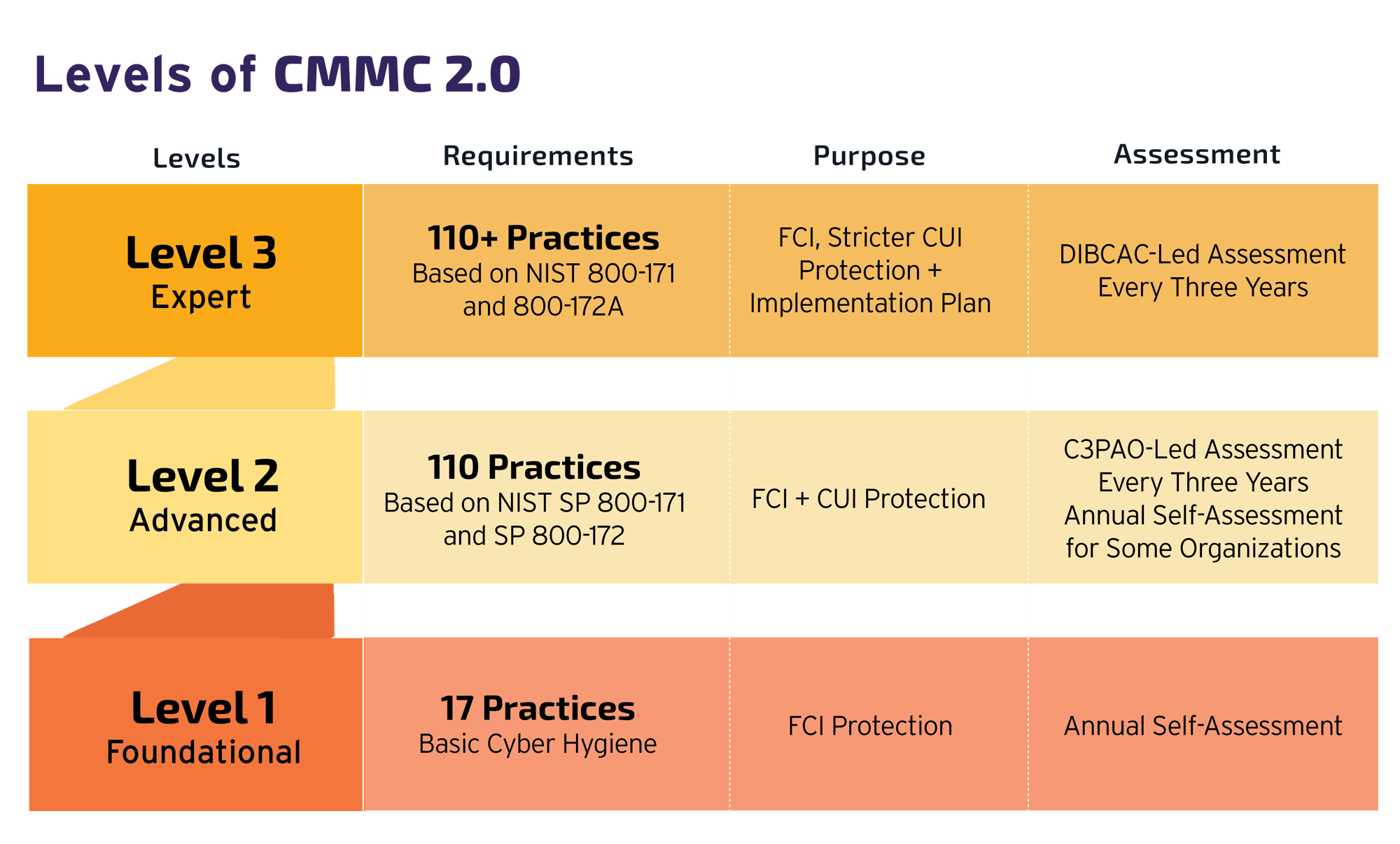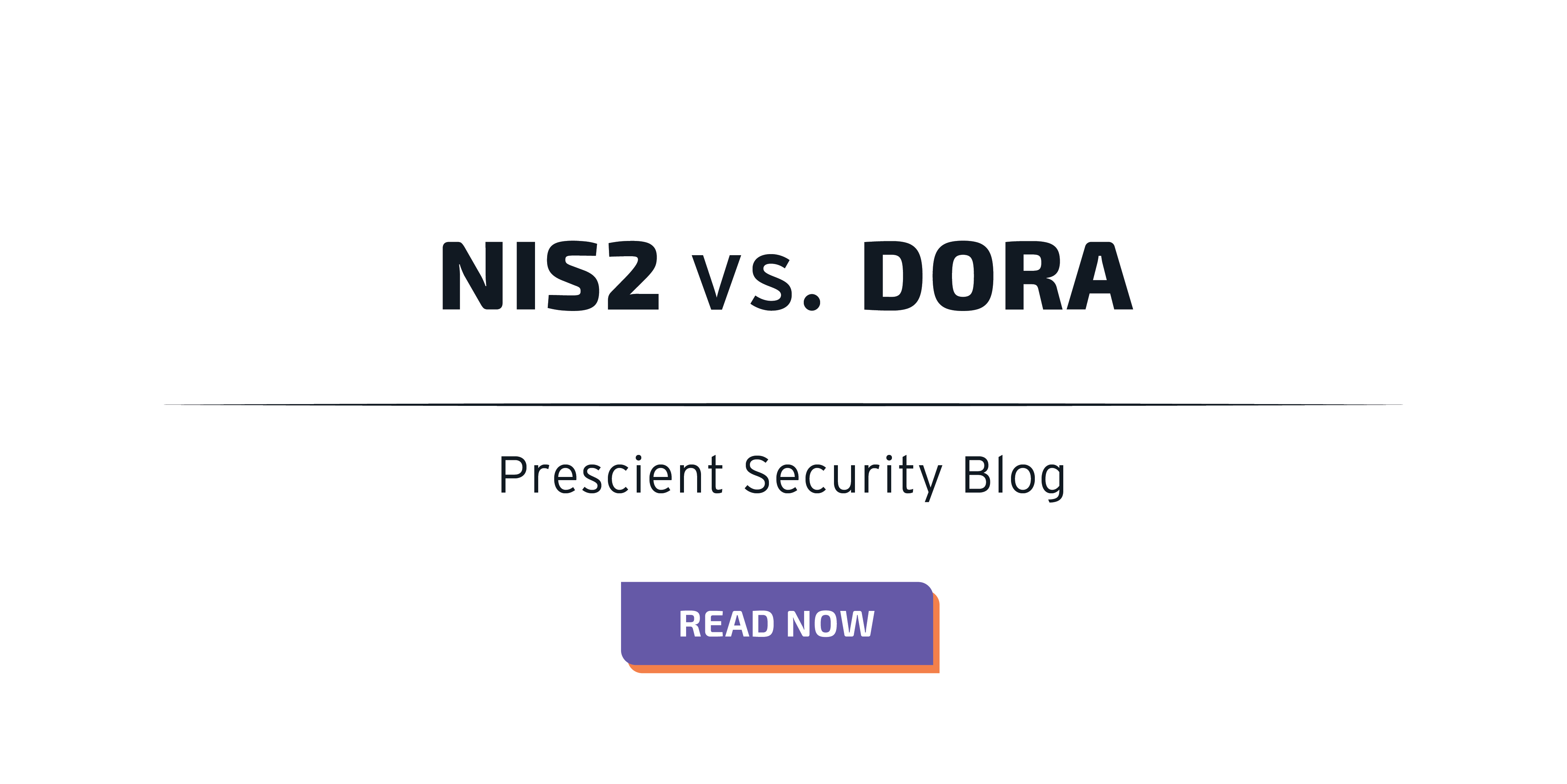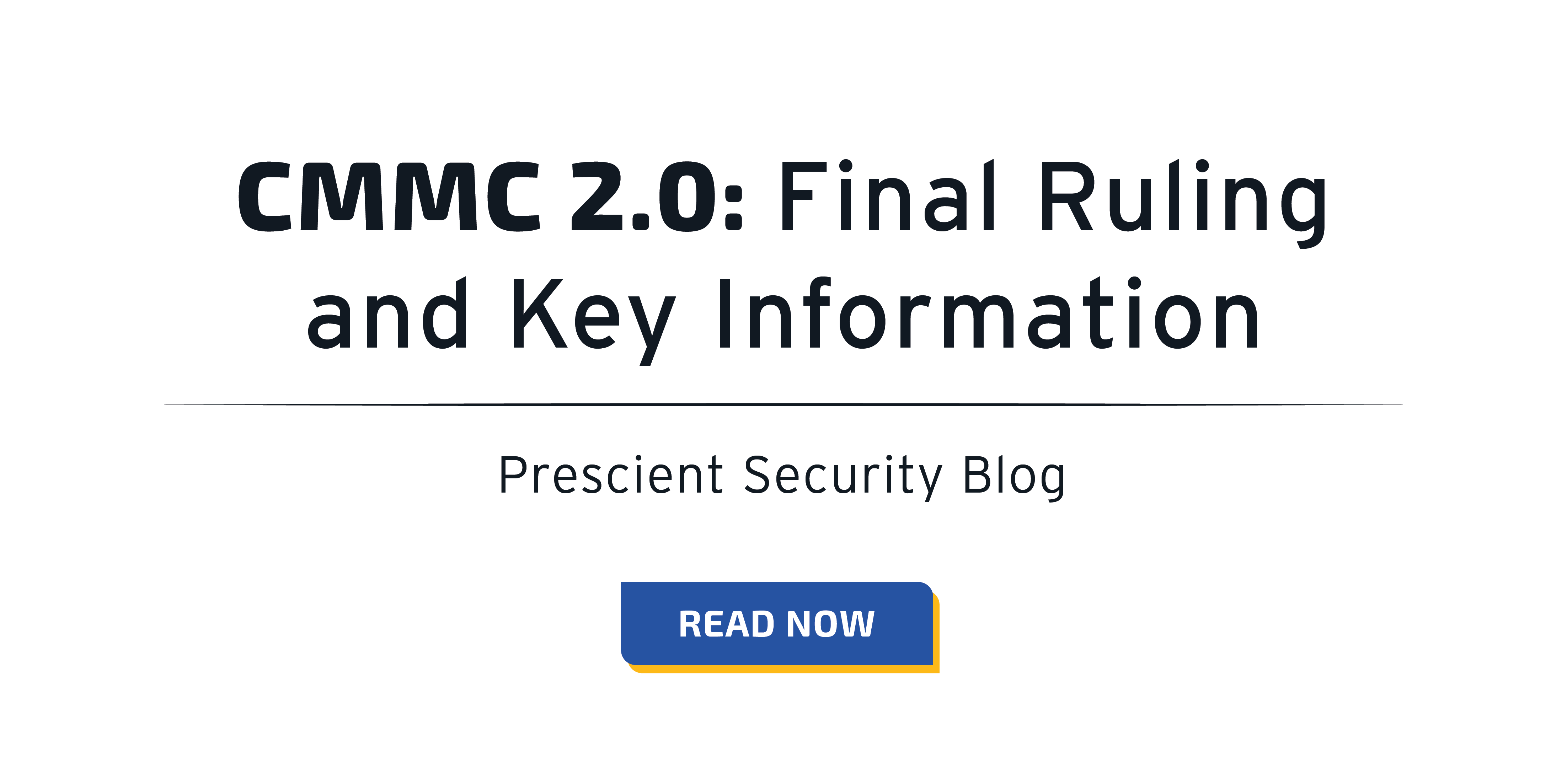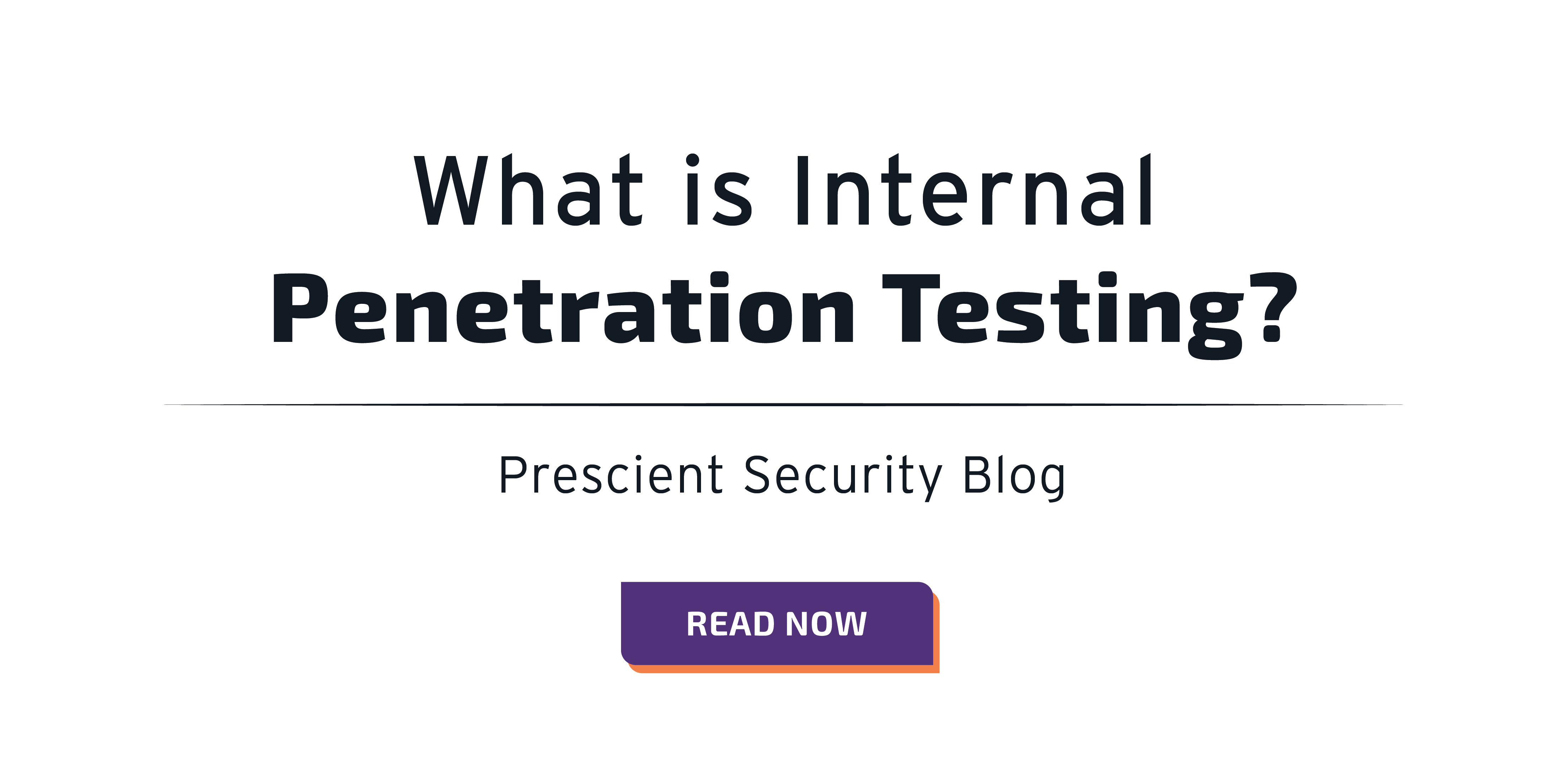What is a C3PAO?
 Gabriela Silk
·
7 minute read
Gabriela Silk
·
7 minute read
A C3PAO (CMMC Third-Party Assessor Organization) is a third-party organization accredited to assess whether contractors and subcontractors to the US Department of Defense meet the necessary cybersecurity requirements to handle sensitive information. Every C3PAO has to be authorized by the CMMC Accreditation Body (CMMC-AB) to operate as such and as we’ll explore further, has to meet rigorous standards to reach this status.
If you’re a business that wants to work with the DoD then you’re likely in need of a CMMC and thus, a C3PAO to assess and verify you for it. Keep reading to learn more about what a CMMC is, how to choose the best C3PAO for your organization’s needs, and how to become a C3PAO yourself. We’ll declassify the jargon and help simplify this important cybersecurity process that so many are facing at the moment.
Contents
- Why Are C3PAOs Important?
- The Importance of C3PAOs in CMMC
- What is CMMC?
- Who Needs a C3PAO?
- How to Choose the Best C3PAO for CMMC Assessments
- How Do You Become a C3PAO?
- Prescient Security and CMMC as a C3PAO
Why Are C3PAOs Important?
C3PAOs are often referred to as the “gatekeepers” between the DoD and its contractors. Their role is a critical one as it ensures that anyone working for the Defense Department is properly equipped to protect sensitive data against cybersecurity threats.
The fact that they operate as independent assessors, free of government ties or any connections to the organization under assessment, helps cement their integrity. It ensures that the compliance process remains unbiased and in turn, upholds a sense of trust in the CMMC process.
When an organization achieves CMMC, that certification holds significant weight in the cybersecurity community. This positive reputation is largely due to the position that C3PAOs uphold. That’s why picking the right one is so important.
The Importance of C3PAOs in CMMC
Evaluating whether an organization’s cyber security practices meet CMMC requirements is a task with serious national security implications. Poor cybersecurity controls can expose sensitive data and put lives at risk. C3PAOs, as the groups meant to assess and verify CMMC certification, have a big mantle to uphold.
Evaluating whether an organization’s cyber security practices meet CMMC requirements is a task with serious national security implications. Poor cybersecurity controls can expose sensitive data and put lives at risk. C3PAOs, as the groups meant to assess and verify CMMC certification, have a big mantle to uphold.
Here’s a closer look at why C3PAOs are so significant in CMMC:
- They ensure that assessments are objective, consistent, and fair by maintaining a position of independence. There’s a reason why the CMMC or DoD doesn’t simply perform assessments themselves.
- CMMC certification is non-negotiable when bidding on certain DoD contracts, especially those of high-priority. C3PAOs are how organizations can obtain that certification. They not only conduct the assessment but also ensure that everything is submitted properly to the DoD and the Cyber AB.
- The work that C3PAOs do helps drive better cybersecurity practices. This isn’t just relevant in defense work, but in generally assisting businesses to take note of risk areas and buffer their operations against threats so that they’re better protected from attacks and their data kept more secure.
What is CMMC?
The CMMC or Cybersecurity Maturity Model Certification is based on a cybersecurity framework developed by the U.S. Department of Defense (DoD). Its chief function is to assist in protecting Controlled Unclassified Information (CUI) and Federal Contract Information (FCI) by making sure that contractors follow the proper cybersecurity measures.
The Defense Industrial Base (DIB) is a big target for cyber-attacks. The CMMC is meant to diminish the occurrence of those attacks by getting organizations to tighten up on aspects such as:
- Access control.
- Incident response plans.
- General risk management.
- System integrity.
- Commitment to maintaining security protocols.
The way the CMMC is structured, however, means that organizations don’t have to do everything at once. Instead, they follow a tiered system that we’ll explain in the next section.
CMMC Maturity Levels
The CMMC used to be divided into five maturity levels but now with CMMC 2.0 coming into action in 2025, it’s been consolidated into just three. With each level, the cyber-security requirements get progressively more advanced. The reason for this tiered system is simple: it allows organizations to tailor their certification according to the level of information they’ll be dealing with. The more sensitive the information will be, the higher the CMMC level they’ll need to comply with.
Each level also builds off the other so that organizations that have to increase their certification level do so by building on what they already have. Here’s a closer look at each level, who they’re relevant to, and what their focus is:
- Level 1: The foundational CMMC level is focused mainly on protecting Federal Contract Information (FCI) and applies to contractors that will only be handling this type of information, as opposed to CUI.
Its requirements are fairly basic and essentially check whether an organization has decent cybersecurity hygiene in terms of antivirus software, access control, etc. It only requires an annual self-assessment and affirmation, though a C3PAO can still be useful for readiness assessments. - Level 2: This is the advanced level that takes things up a notch by looking at the protection of Controlled Unclassified Information (CUI). Any contractor that will be storing or processing this information has to comply.
The security controls required align with NIST SP 800-171 and are far more rigorous than level 1. For example, level 1 only requires 17 security controls. This requires 110. It’s a jump in intensity as it digs into policy implementation and stronger security practices which is why the level calls for a full C3PAO certification assessment. - Level 3: Known as the “expert” level, here’s where things get even more serious. Based on NIST SP 800-171 and parts of NIST SP 800-172, this level looks at preparing contractors working on high-value DoD projects to handle what’s known as “Advanced Potential Threats” (APTs). The controls aren’t just about protecting against potential attacks but fishing them out. Getting certified at this level requires a DIBC certification assessment every three years.

Who Needs a C3PAO?
Any organization applying for a contract with the DoD in which a CMMC level 2 assessment is required needs a C3PAO. It’s as simple as that. In these instances, a contract won’t be awarded without getting a C3PAO in and the certification done.
It’s also worth pursuing for those that are wanting to build a more competitive position when applying for general DoD work. Any contract labeled as high-priority or involving the handling of CUI will need a C3PAO assessment. It’s why sometimes even if you’re not the primary contractor on a job and simply supporting another organization, you might still need the assessment.
How to Choose the Best C3PAO for CMMC Assessments
The implications of an ill-matched C3PAO are significant. Organizations can risk missing out on contracts because of it, or accidentally landing in legal hot water because of poor compliance, making it vital that only the best C3PAO for their CMMC assessment is chosen. Here’s what to consider when doing so:
- Accreditation and Experience: Stick to C3PAOs that are officially listed by Cyber AB and have a status of “authorized” or “accredited” and are clearly approved to perform CMMC level 2 assessments. This is vital as it’s what will ensure that an assessment is done properly, and certification achieved successfully.
- Reputation and References: Check the C3PAO's track record by looking at references and even calling prior clients to see what their experience was like. Reputation increasingly matters as it will affect the integrity of the assessment and in turn, an organization’s chance of securing work with the DoD. Doing this also helps identify any potential conflicts of interest.
- Technical Expertise: There are two things to consider from a technical standpoint. First, how well-versed the C3PAO is with your kind of cyber security system and how well they’ll be able to understand your business’s context.
For example, if you’re a small business dealing with a niche form of data management, are they equipped to understand that? What is their technical background and are they familiar with your area of business and industry? These are the kinds of questions to ask when selecting a C3PAO. - Communication and Support: Soft skills matter just as much as technical ones. If communication isn’t good, it will make the CMMC process feel unnecessarily complicated.
C3PAOs need to have structures in place that answer your questions from pre-assessment all the way to post-assessment. They should keep you informed on any cyber security gaps that need attending to and generally make you feel supported throughout certification. There will be a significant amount of documentation that will need to be provided during the process. Working with a C3PAO that is responsive and easy to deal with can make this administrative load much more manageable. - Customization and Flexibility: Every business comes with its own context, be it due to the kind of DoD work they’re aiming to do or because of the industry that they’re in. A good C3PAO will be able to customize the certification process to those needs and work with your organization, rather than against it.
- Post-Assessment Services: Ask any C3PAO that you’re considering if they offer services after the initial assessment such as verifying remediation efforts. CMMC level 2 also has to be re-assessed every three years. Working with a C3PAO that’s invested in your long-term cyber-security success is what helps maintain certification beyond that first assessment.
How Do You Become a C3PAO?
You might be interested not just in working with a CMMC Third Party Assessor Organization (C3PAO) but becoming one. Understanding what’s involved can also help provide some clarity on what to look for from a C3PAO.
Here’s how an organization can become certified to assess defense contractors’ cybersecurity practices:
- Understand Requirements: The CMMC-AB has detailed guidelines on the qualifications and standards required for a C3PAO. Start there to get a sense of where your organization is with things, and what might need to be adjusted before seeking accreditation.
- Establish Ownership and Control: A C3PAO has to be entirely owned by a US citizen. If it’s part of a global partnership or publicly traded, it then needs to pass a Foreign Ownership Control or Influence (FOCI) background check.
- Achieve CMMC Level 2 Compliance: This involves demonstrating all the proper cybersecurity practices that you’ll go on to assess from the other side of the process.
- Obtain Necessary Certifications: An ISO 17020 certification from the Cyber-AB is required to establish competency, integrity, and impartiality.
- Complete Organizational Background Checks: The CMMC-AB will conduct these to verify no foreign influence is at play.
- Register With The CMMC-AB Marketplace: Doing this ensures that defense contractors know you’re a legitimate C3PAO. It can only be done, however, once all the above requirements are met.
- Secure Necessary Insurance Policies: Performing assessments does come with liability risks so make sure you have insurance that can cover this.
- Hire Qualified Personnel: A skilled team will usually include certified assessors and CMMC professionals, as well as relevant cybersecurity or legal experts. A good team will make assessments more effective and lower some of the risks involved.
- Pay Annual Fees: The CMMC-AB charges administrative and support fees every year. These have to be paid in order to maintain status as a C3PAO.
- Prepare For Continuous Improvement: CMMC standards are continuously evolving to keep up with cyber threats and the changing technological landscape. To maintain C3PAO accreditation, organizations need to be prepared to move with these changes and continually improve their cyber security practices.
C3PAO Meaning
A critical part of the Cybersecurity Maturity Model Certification (CMMC) framework, CMMC Third-Party Assessor Organizations (C3PAO's) are authorized by the CMMC Accreditation Body (CMMC-AB) to conduct assessments that evaluate a contractor's cybersecurity maturity.
Prescient Security and CMMC as a C3PAO
Prescient Security is a CMMC Registered Practitioner Organization (RPO). Our team of highly skilled experts is here to not only carry out Readiness Assessments for CMMC levels 1 and 2 but bolster your organization’s certification success. We’ve designed our services to help you get the most out of the process and save you from getting stuck in the nitty-gritty of CMMC requirements.
Our registered practitioners don’t just give advice or guidance from a distance. Instead, we aim to work collaboratively with our clients and tailor the process to your needs. As a CAICO Licensed Training Provider (LTP), we take a similarly flexible approach with our CMMC training services. Training can be adjusted to busy schedules and even take the form of quick, effective bootcamps.
If you’re looking for a practical, efficient, and flexible approach to CMMC, click here to talk to our experts. We’re happy to answer any questions you have, whether it’s about C3PAO assessments or getting certified to be an assessor.



